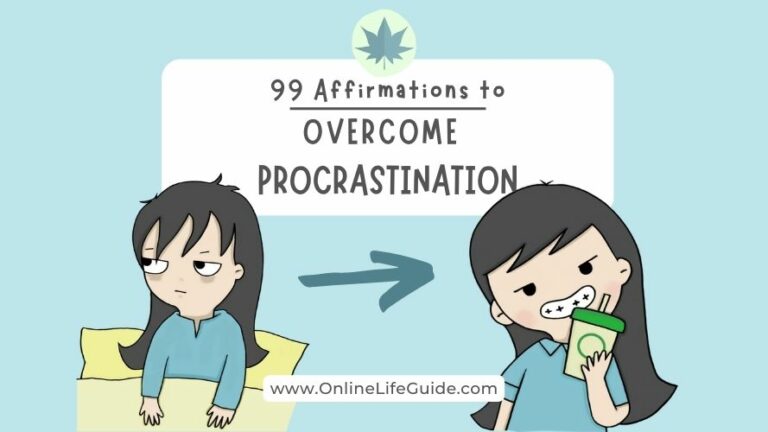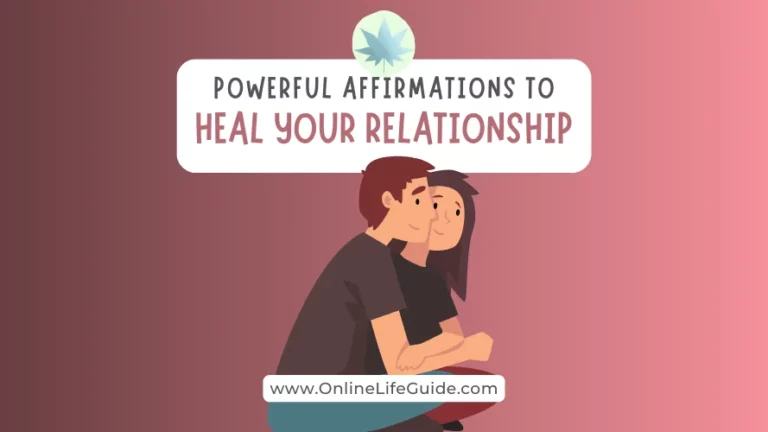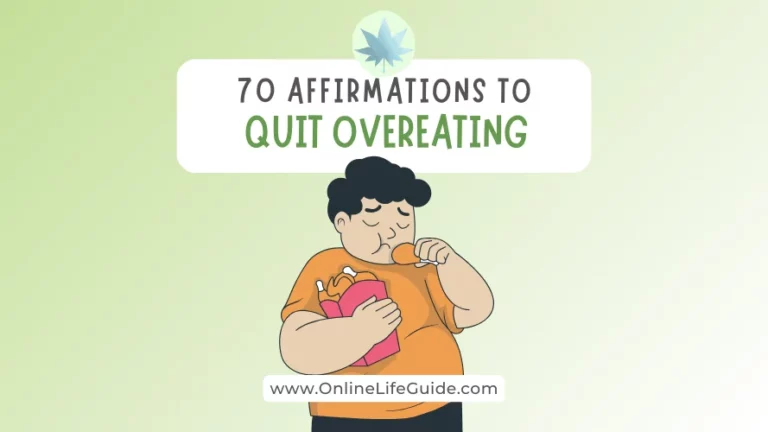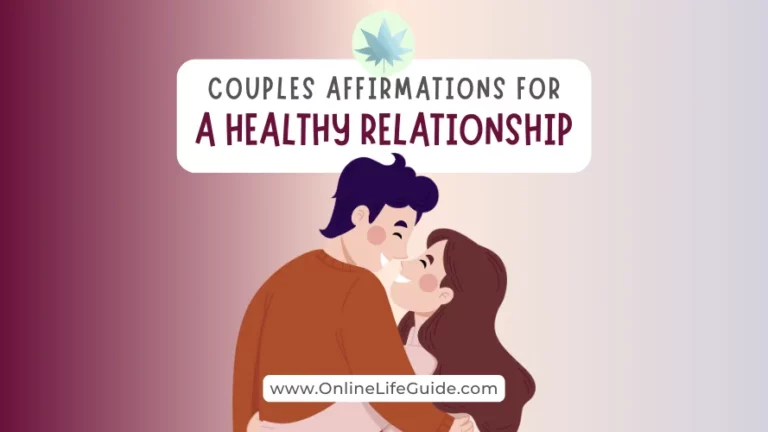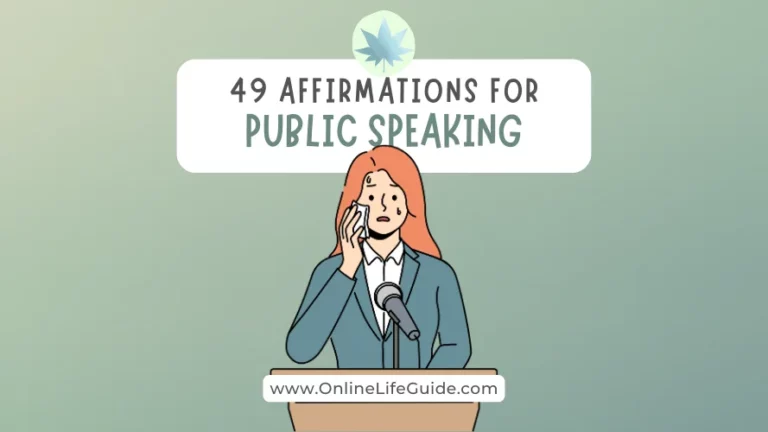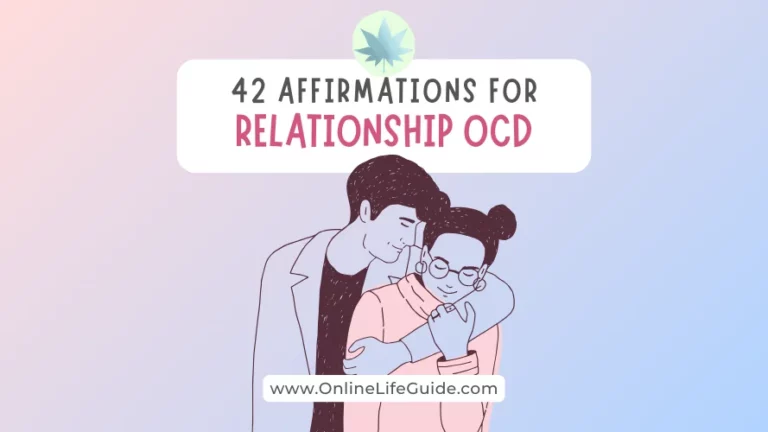50 Affirmations for Avoidant Attachment
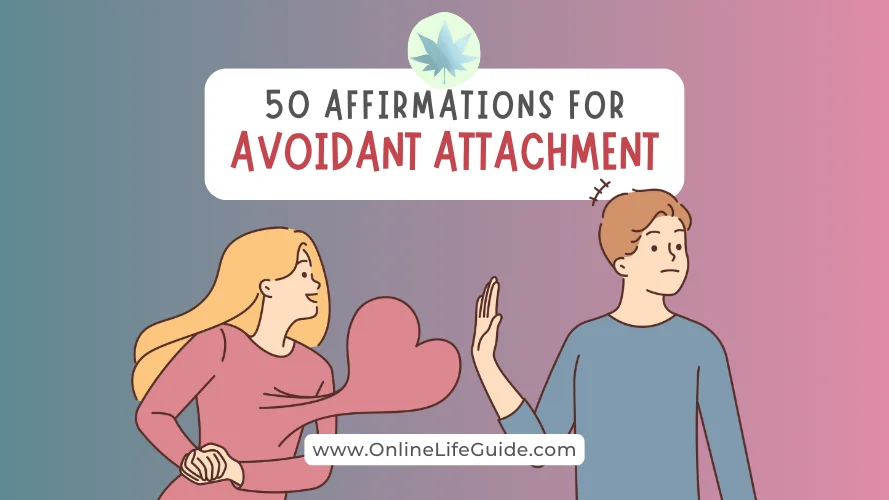
The following Affirmations are designed specifically to cover different aspects of avoidant attachment style which will help you heal and overcome the issues related to avoidant attachment. Here’s an overview of this guide:
- What is Avoidant Attachment?
- How Avoidant Attachment Affects Relationships
- Positive Affirmations for Avoidant Attachment
- Overcoming Fear of Vulnerability
- Healing Past Traumas
- Trusting and Embracing Intimacy
- Embracing Secure Attachment
- How to Use These Affirmations to Overcome Avoidant Attachment
- Other Attachment Styles
What is Avoidant Attachment?
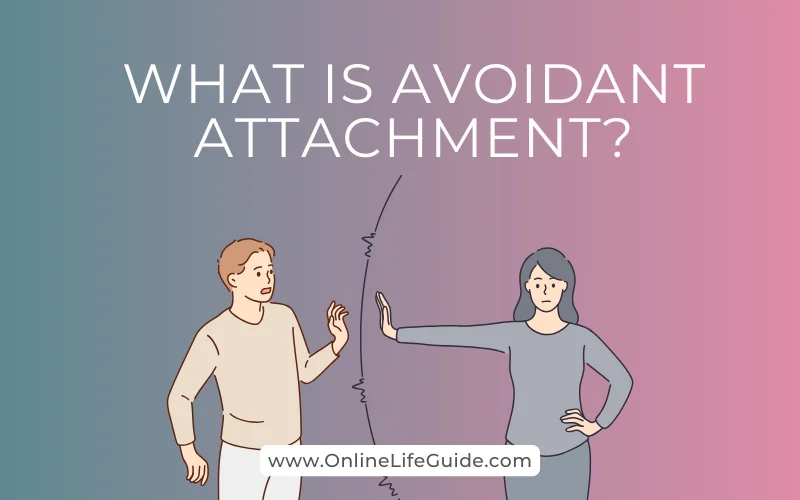
Avoidant attachment, according to the attachment theory, refers to a specific pattern of emotional bonding and connection between individuals, often observed in the parent-child relationship and later in adult romantic relationships.
People with avoidant attachment tend to avoid or downplay emotional closeness and intimacy. This avoidance stems from a deep-seated fear of getting hurt or rejected.
How Avoidant Attachment Affects Relationships
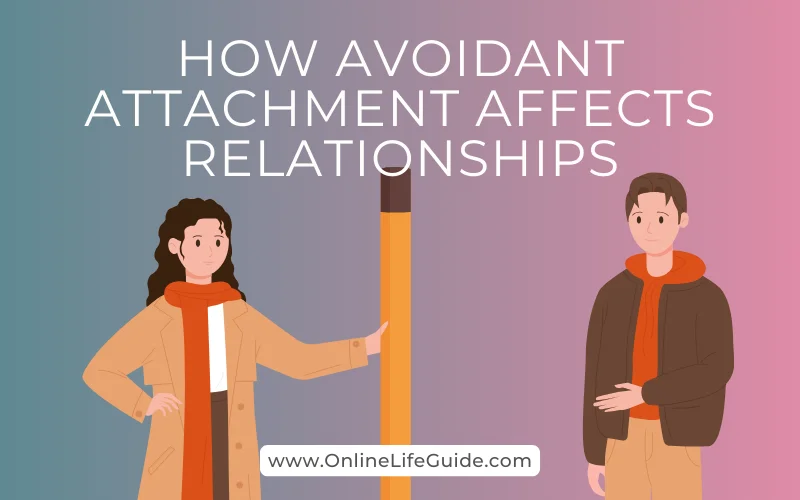
Avoidant attachment affects relationships by hindering the development of secure emotional connections.
It creates barriers to intimacy, making it challenging for both partners to experience the depth of emotional closeness and mutual support that is vital for a satisfying and lasting relationship.
In relationships, people with avoidant attachment tend to keep their partners at an emotional distance, fearing vulnerability and intimacy. They might avoid sharing their true feelings, dismiss or downplay their own needs, and find it challenging to trust their partners.
This emotional distance can create misunderstandings and feelings of neglect in their relationships.
Partners of individuals with avoidant attachment might feel frustrated by the lack of emotional closeness, leading to feelings of rejection or unworthiness.
These individuals might also struggle with expressing love and affection, as they find it difficult to engage in the emotional give-and-take essential for a healthy relationship.
Furthermore, individuals with an avoidant attachment style may have a tendency to end relationships prematurely or sabotage them by unconsciously pushing their partners away when intimacy deepens.
This behavior often stems from their fear of getting too close and being vulnerable, as it triggers anxiety and discomfort so they try to protect themselves from potential emotional pain.
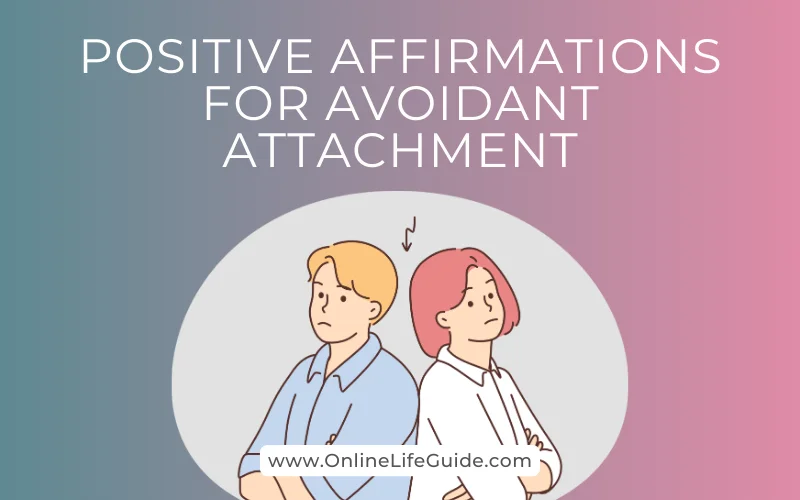
Positive Affirmations for Avoidant Attachment
1. I release my fear of intimacy and embrace genuine connections with others.
2. I am worthy of love and capable of forming deep, meaningful relationships.
3. My past does not define my future. I am open to giving and receiving love.
4. I let go of my defenses and allow myself to be vulnerable in relationships.
5. I trust in the process of love and let it flow naturally into my life.
6. I am secure in my worth, and I attract healthy, loving relationships.
7. Each day, I move closer to emotional freedom, leaving avoidant patterns behind.
8. Love is my natural state. I allow it to flow freely into every aspect of my life.
9. My heart is open, and I am ready to experience the joy of deep, meaningful connections.
10. I release all resistance to love. I am deserving of unconditional and lasting relationships.
Overcoming Fear of Vulnerability
1. Vulnerability is my strength. It allows me to connect with others on a profound level.
2. I embrace vulnerability as the foundation of intimacy and deep connection.
3. Opening my heart to others enriches my life with love and understanding.
4. I release the need to control every outcome, allowing love to guide my relationships.
5. Expressing my true feelings empowers me and strengthens my connections.
6. I trust that my vulnerability will be met with kindness and understanding.
7. In vulnerability, I find courage, and in courage, I discover the beauty of genuine connection.
8. I am resilient in the face of challenges. It fuels my personal and emotional growth.
9. Each moment of vulnerability brings me closer to authentic relationships and self-discovery.
10. I celebrate my vulnerability as a testament to my authenticity and willingness to love deeply.
Healing Past Traumas
1. I am resilient, and I release the grip of past traumas on my present self.
2. Healing is my birthright, and I embrace it with compassion and self-love.
3. I forgive myself and others, liberating my spirit from the weight of the past.
4. Each day, I let go of pain, making room for joy, love, and inner peace.
5. I am in control of my healing journey. I choose to move forward with grace.
6. My past does not define me. I am free to create a future filled with love and happiness.
7. I release the burden of old wounds, allowing my heart to experience love at its fullest.
8. My past experiences are a testament to my strength, resilience, and capacity for growth.
9. I honor my past for the lessons it taught me, but I no longer let it dictate my present happiness.
10. With each step toward healing, I reclaim my power and embrace life with renewed vitality.
Trusting and Embracing Intimacy
1. I allow myself to develop intimacy with the one I love.
2. Intimacy is my birthright, and I welcome it into my life with an open heart.
3. I am deserving of deep, intimate relationships that nurture my soul.
4. I release my fears and insecurities, allowing intimacy to flourish in my life.
5. Trusting others is a reflection of my inner strength and belief in the goodness of humanity.
6. I embrace the beauty of being truly known and accepted by others.
7. In the arms of intimacy, I find safety, love, and endless possibilities for growth.
8. My capacity for intimacy is limitless. I welcome connections that enrich my life.
9. Intimacy is the language of my heart. I communicate openly, honestly, and fearlessly.
10. I trust that my journey toward intimacy is guided by divine wisdom, leading me to a profound and lasting bond.
Embracing Secure Attachment
1. I am secure in my worth, and my relationships reflect this inner security.
2. Love flows easily and naturally to and from me. I am deserving of healthy attachments.
3. I create a safe space for love to thrive while nurturing secure and fulfilling relationships.
4. I trust in the stability of my relationships as I allow them to blossom and flourish.
5. Secure attachment is my birthright, and I welcome it into my life with open arms.
6. My heart is a sanctuary of love, attracting a partner who honors and respects my boundaries.
7. I release fear and doubt, embracing the confident and secure lover within me.
8. I radiate self-assurance as I draw in partners who appreciate my authenticity and emotional openness.
9. I am a magnet for secure and loving relationships, attracting partners who cherish and support my growth.
10. Each day, I deepen my sense of security, knowing that I am worthy of enduring love and genuine connections.
How to Use These Affirmations to Overcome Avoidant Attachment
| 1. | Pick the top 10 affirmations to Overcome Avoidant Attachment that are relevant to your particular situation and resonate with you the most. The ones that connect with you on a deeper level and feel the most meaningful to you. |
| 2. | Write those affirmations on paper or on your phone and dedicate 5-10 minutes each day to focus on these affirmations. Pick a time that suits you best. First thing in the morning, during lunch break, before bed, or when you find yourself struggling with avoidant attachment patterns (which is the best time to use these affirmations!). |
| 3. | As you say these affirmations, visualize them as if it’s your current reality. Vividly see yourself in a secure and relaxed state, having a thriving and healthy relationship with your partner, living a great life, and operating at your best potential. |
| 4. | As you do this practice, notice the shifts in your state of mind. Notice how you subtly grow more relaxed and confident, feeling a sense of calm and contentment. Also notice any doubts, negative thoughts, or anxiety creeping in during this practice. Acknowledge those thoughts and gently let them go. It’s okay. You’re doing just fine. Just bring your focus back on positive and proactive thoughts and visualization. |
| 5. | Be gentle and patient with yourself. It can take some time to start reaping the benefits of this practice. If you don’t feel any significant improvement in the first couple of days, it’s okay. Just trust the process and be consistent in your use of these affirmations. |
| 6. | Periodically switch up your list of top 10 affirmations and pick new affirmations from this list. Bookmark this page so it’s easier for you to return to this list. |
| 7. | Remember that affirmations are a “tool” designed to help you positively reprogram your mind toward improvement. Affirmations work best when complemented with practical actions such as setting goals for improvement, taking measures to eliminate negativity and distractions as much as possible, and practicing mindfulness in your relationships and everyday life. |
Other Attachment Styles
Here are Affirmations for other Attachment Styles:
- Affirmations to Develop Secure Attachment
- Affirmations for Anxious Attachment
- Affirmations for Disorganized Attachment
Additional Resources for Overcoming Avoidant Attachment
If you struggle with intimate relationships because of your attachment style, here are some of my most in-depth guides that will help you improve different areas of your relationship.
- How to Fix a Toxic Relationship – In-depth Guide
- A Complete Guide to Setting Healthy Boundaries in a Relationship
- A Guide on How to Have Healthier Arguments and Handle Conflicts
- 15 Steps to Build a Strong Relationship With Your Spouse
- 12 Worst Relationship Mistakes
- 7 Types of Boundaries in Relationships – With Real Examples
Feel free to check out the following affirmations as they might be relevant to your specific situation.
Pick the best affirmations from each and write them down where you can access them easily (or just bookmark the links):
- Affirmations for Relationship Anxiety
- Affirmations for People Pleasers
- Affirmations for Dealing with Conflict Effectively
I hope these affirmations and the resources help you develop a more secure attachment with your partner and heal your relationship. Make sure to take good care of yourself. Wishing the best for you, always!
See you in the next one!

